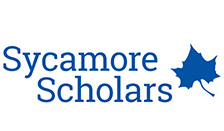Abstract
Context: Limited empirical evidence exists on how athletic trainers (ATs) are hired by NCAA institutions. Current legislation protects many demographics from discrimination during hiring, but these laws may not be enforced by institutions. Objective: The purpose of this study was to describe potential factors that might influence the hiring practices of NCAA Division I Head Athletic Trainers. Design: Cross-sectional design. Setting: Electronic survey distributed to certified athletic trainers. Participants: A web-based survey (Qualtrics) that was distributed to by email to 329 NCAA Division I Head Athletic Trainers. A total of 114 ATs completed the survey (response and completion rate=34.7%). Interventions: NCAA Division I Head Athletic Trainers were emailed an invitation to participate in an electronic survey. The survey included a prompt for hiring an assistant athletic trainer for an NCAA Division I athletics program, questions on demographic data, impact of candidate demographic factors on hiring practices, and impact of candidate skills and education on hiring practices. After the collection window had closed, we calculated central tendencies for participant responses. Main Outcome Measures: Traits and characteristics of applicants preferred by NCAA Division I Head Athletic Trainers. Results: Most ATs reported they would be most likely to hire a candidate with three to five years of experience (90.3%). Most ATs also reported that they would be most likely to hire a candidate with primarily collegiate athletics experience (91.2%). Regarding education, most ATs were most likely to hire a candidate with a post-professional master’s degree in athletic training (95.6%). For demographic factors, most ATs responded in the mid-range of agreement about the impact these factors had on hiring practices. More athletic trainers stated a willingness to hire a candidate of a different race (50%), different religion (45.6%) and different sex (48.2%). Responses regarding sexual orientation were near the mid-range for both same and different sexual orientation. When asked about the most attractive credentials for candidates, ATs ranked Corrective Exercise Specialist, Graston Technique Certified, and Performance Enhancement Specialist highest. Conclusions: Most head athletic trainers agreed that three to five years of professional experience, previous experience with collegiate athletics, and a master’s degree in athletic training were the attributes most likely to influence a candidate being hired. However, many ATs responded toward the mid-range of agreement when asked about demographic factors when considering candidates. This may indicate an unwillingness to respond favorably or unfavorably on the topic. Future research should focus on assessing hiring practices in a manner that requires a favorable or unfavorable response. Athletic trainers involved in the hiring practice at their institutions must work to ensure that they are hiring the best candidate irrespective of demographic factors that have no bearing on technical standards of the position.
Recommended Citation
Cage, S A.; Winkelmann, Z K.; Warner, B J.; Tuell, C; and Gallegos, D M.
(2021)
"Hiring Practices Among NCAA Division I Head Athletic Trainers,"
Clinical Practice in Athletic Training: Vol. 4:
Iss.
2, Article 11.
Available at:
https://scholars.indianastate.edu/clinat/vol4/iss2/11

